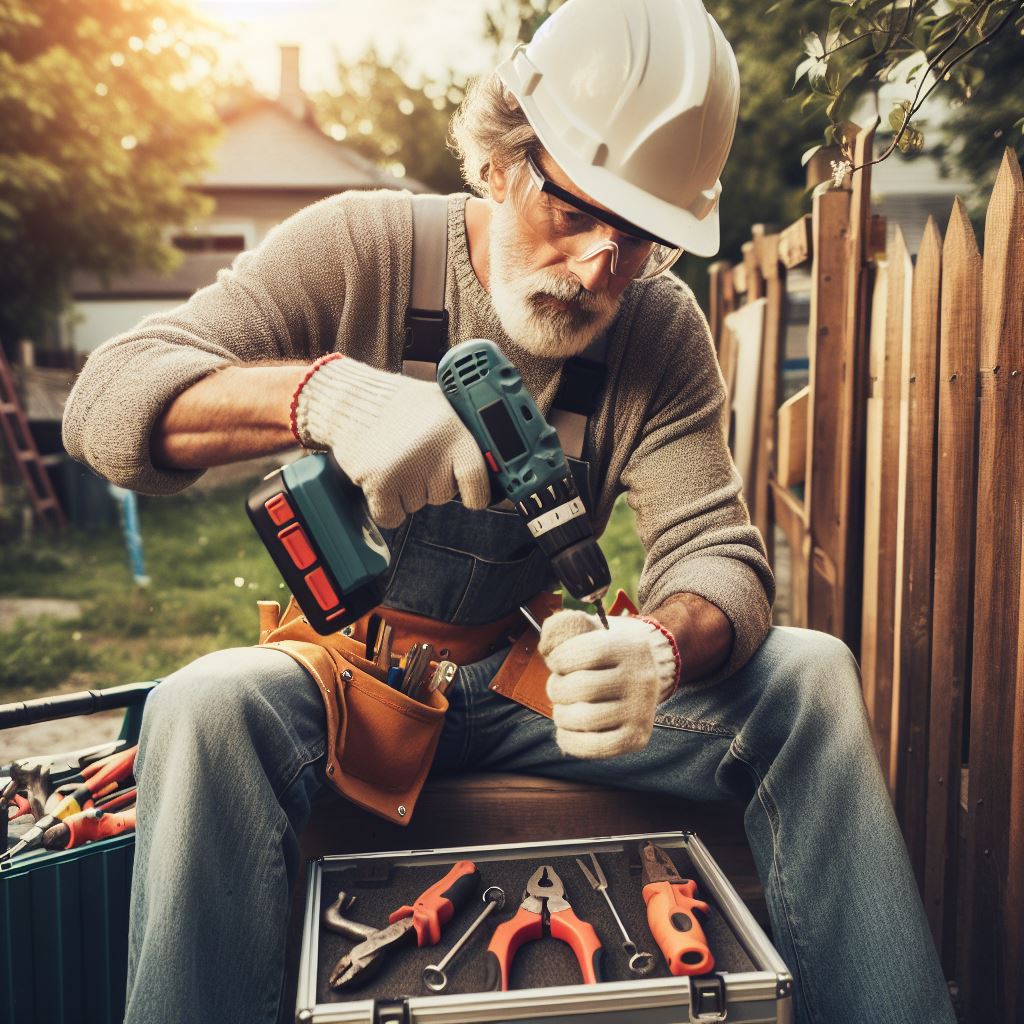Introduction
Preventive maintenance plays a crucial role in the real estate industry, ensuring smooth operations and minimizing costly repairs.
In this blog post, we aim to enlighten readers on the significance of preventive maintenance in avoiding large repair bills.
By following these tips, you can save money and protect your property’s value.
Without regular maintenance, properties can quickly deteriorate, leading to major issues and significant expenses.
This blog post will highlight the essential steps and practices to prevent such scenarios.
The Importance of Preventive Maintenance in Real Estate
Maintaining your property’s condition is vital, not only to safeguard its value but also to provide a safe and comfortable environment for tenants.
Regular inspections, servicing, and repairs ensure that small problems are identified and resolved promptly before escalating into costly issues.
From HVAC systems and plumbing to electrical equipment and structures, neglecting preventive maintenance can result in disruptive breakdowns and expensive repairs.
Taking proactive measures significantly reduces the likelihood of unexpected failures and prolongs the lifespan of building components.
Purpose of the Blog Post
This blog post aims to educate property owners, real estate investors, and landlords about the benefits and necessity of preventive maintenance.
By adopting a proactive approach, you can effectively manage your property’s upkeep and avoid the financial burden of major repairs down the line.
Through practical tips and expert advice, we’ll guide you on how to establish a preventive maintenance plan, hire qualified professionals, and conduct regular inspections.
By implementing these strategies, you can protect your investment and ensure the longevity of your property while saving on large repair bills.
Stay tuned for our upcoming sections, where we delve deeper into specific preventive maintenance practices and share valuable insights for property owners and managers.
The Concept of Preventive Maintenance
Definition of preventive maintenance
Preventive maintenance is a proactive approach that focuses on preventing issues rather than reacting to them.
It involves regular inspections, servicing, and necessary repairs to maintain the optimal functionality of equipment, systems, and property.
Benefits of implementing preventive maintenance practices
By implementing preventive maintenance practices, individuals and organizations can reap numerous benefits.
These benefits include cost savings in the long run, increased property value, enhanced property aesthetics, and an extended lifespan of equipment and systems.
Cost savings
In terms of cost savings, preventive maintenance helps avoid major breakdowns and repairs that can be expensive.
By identifying potential issues early, preventive maintenance allows for timely repairs or replacements, saving significant amounts of money that would otherwise be spent on emergency repairs or complete system failures.
Increased property value
Moreover, properties that undergo regular preventive maintenance have higher market value.
Potential buyers or tenants are more likely to be attracted to a property that is in good condition and well-maintained.
This not only increases the property’s desirability but also its potential resale or rental value.
Enhanced property aesthetics
Another advantage of preventive maintenance is enhanced property aesthetics.
Regular upkeep ensures that the property remains visually appealing, creating a positive impression on visitors, tenants, or customers.
A well-maintained property reflects professionalism, attention to detail, and a sense of pride.
Extended lifespan of equipment and systems
Furthermore, implementing preventive maintenance practices leads to an extended lifespan of equipment and systems.
Regular inspections, servicing, and necessary repairs improve the efficiency and functionality of equipment, reducing the risk of premature failures or replacements.
This not only saves money but also minimizes downtime and disruptions to daily operations.
In essence, preventive maintenance is a crucial aspect of property management, whether it’s for residential, commercial, or industrial properties.
The concept emphasizes the importance of regular inspections and upkeep to prevent costly repairs, increase property value, enhance aesthetics, and prolong the lifespan of equipment and systems.
By implementing preventive maintenance practices, individuals and organizations can effectively avoid big repair bills and ensure the long-term sustainability and functionality of their properties.
Read: Rental Inspection Guidelines: Staying Compliant in 2024
Common Areas for Preventive Maintenance
In order to avoid big repair bills, preventive maintenance is crucial.
By regularly maintaining various areas of your home or property, you can identify and address issues before they become major problems.
Here are some common areas that require preventive maintenance:
HVAC Systems
Your Heating, Ventilation, and Air Conditioning (HVAC) systems play a crucial role in keeping your property comfortable.
To prevent any major breakdowns or costly repairs, it is important to conduct regular inspections and filter changes.
Additionally, cleaning and lubricating the system helps to maintain its efficiency.
It is also recommended to schedule professional servicing and tune-ups to ensure optimal performance.
Plumbing Systems
Plumbing issues can quickly escalate into costly repairs if not addressed promptly.
Regular leak checks can help identify any potential leaks before they cause extensive damage.
Proper maintenance of fixtures and pipes, such as tightening connections and replacing worn-out parts, can prevent leaks and water damage.
Regular drain maintenance, including clearing clogs and debris, is also essential to prevent plumbing issues.
Electrical Systems
Regular inspections of your electrical system can help identify any potential hazards or faulty wiring. It is important to look for signs of damage or wear and tear.
If you notice any damaged outlets or switches, they should be promptly replaced to prevent electrical issues and ensure the safety of your property.
Maintenance of lighting systems, such as replacing bulbs and cleaning fixtures, is also important to prevent lighting failures and potential fire hazards.
Structural Elements
Structural elements of your property, such as the roof, foundation, windows, and doors, require regular maintenance to prevent major repairs.
Conducting roof inspections and addressing any minor issues, such as loose shingles or leaks, can prevent costly roof replacements.
Foundation checks should be conducted to identify any signs of cracks or instability, and repairs should be carried out promptly.
Regular maintenance of windows and doors, including lubrication and weatherstripping, can help prevent energy loss and improve security.
By implementing a comprehensive preventive maintenance plan for these common areas, you can significantly reduce the likelihood of facing big repair bills.
Regular inspections, filter changes, leak checks, and maintenance tasks can help identify and address issues before they escalate into costly problems.
Additionally, scheduling professional servicing and tune-ups for HVAC systems can ensure their optimal functioning.
Taking proactive measures to maintain your property will not only save you money but also increase its longevity and value.
Read: Emergency Repairs 101: Quick Fixes for Homeowners
Importance of Regular Inspections
Regular property inspections play a crucial role in preventive maintenance by avoiding big repair bills.
By conducting periodic property inspections, owners and property managers can reap a multitude of benefits that contribute to the overall health and longevity of their properties.
Benefits of Periodic Property Inspections
Identification of minor issues before they become major
Regular inspections allow property owners and managers to spot minor issues such as leaks, cracks, or wear and tear before they escalate into costly repairs.
Addressing these issues promptly can prevent further damage and save significant amounts of money in the long run.
Lower repair costs
Early detection of problems through inspections enables owners and managers to address them swiftly and at a lower cost.
By fixing small issues before they worsen and require extensive repairs, property owners can avoid big repair bills and preserve their financial resources.
Improved tenant satisfaction
Property inspections provide an opportunity to assess the overall condition of the property and its amenities, ensuring that tenants are living in safe and well-maintained environments.
Regular inspections demonstrate the owner’s commitment to providing a high standard of living, which can enhance tenant satisfaction and increase lease renewals.
Frequency of Property Inspections
Factors influencing inspection schedules
The frequency of property inspections can vary depending on several factors.
These include the age and condition of the property, the presence of specific vulnerabilities or known issues, local regulations, and the type of tenants occupying the property.
Recommended inspection intervals
While there is no one-size-fits-all approach to property inspections, experts recommend conducting inspections at least twice a year.
However, certain factors may warrant more frequent inspections.
For example, properties in areas prone to extreme weather conditions or with high turnover rates might require quarterly or even monthly inspections.
Regular property inspections are essential for preventive maintenance as they offer numerous benefits.
By identifying minor issues early on, owners can prevent significant repairs, reduce costs, and ensure tenant satisfaction.
Factors like property condition and local regulations influence inspection frequency, with periodic inspections being the recommended practice.
Read: Energy Efficiency Laws and Your Rental Property

Developing a Preventive Maintenance Plan
A well-executed preventive maintenance plan can help property owners avoid big repair bills and keep their properties in good condition.
This section will provide a step-by-step guide to developing an effective preventive maintenance plan.
Assessment of property needs
- Identifying critical areas: Begin by identifying the critical areas of your property that require regular maintenance.
- Prioritizing maintenance tasks: Determine which tasks are most important and require immediate attention.
Creating a maintenance schedule/calendar
- Monthly, quarterly, and annual tasks: Divide your maintenance tasks into specific time intervals to ensure nothing is overlooked.
- Setting reminders and notifications: Utilize technology to set up reminders and notifications for upcoming tasks.
Budgeting for preventive maintenance
- Allocating funds for regular upkeep: Set aside a portion of your budget specifically for preventive maintenance expenses.
- Adjusting budget based on property size and complexity: Consider the size and complexity of your property when determining the appropriate maintenance budget.
By following these steps, property owners can develop a comprehensive preventive maintenance plan that helps avoid costly repairs and ensures the longevity of their assets.
Read: Landlord-Tenant Law: Key Changes in US States
Hiring Professionals vs. DIY
When it comes to preventive maintenance, one of the key decisions you need to make is whether to hire professionals or handle it yourself.
This choice can significantly impact your finances, time, and effectiveness in avoiding big repair bills.
Factors to consider when deciding between professional services and DIY
- Cost implications: Hiring professionals may incur higher costs compared to doing the maintenance yourself.
Consider your budget and evaluate the value provided by professionals. - Time and effort required: DIY maintenance requires a substantial investment of your time and physical effort.
Assess whether you have the availability and willingness to dedicate yourself to the task. - Skill set and expertise needed: Some maintenance tasks demand specific skills and knowledge.
Evaluate if you possess the necessary expertise or if it’s best left to professionals with the required qualifications.
Finding reputable contractors and maintenance service providers
- Asking for recommendations: Seek advice from people you trust who have experience with professional services.
Their insights can help you find reliable contractors. - Checking credentials and reviews: Research the credentials, licenses, and certifications of potential contractors.
Look for reviews or testimonials to assess their reputation and customer satisfaction. - Obtaining multiple quotes for comparison: Request quotes from different contractors or service providers to determine the appropriate pricing range.
Comparing multiple quotes ensures you get the best value for your money.
Hiring professionals has its advantages, particularly when dealing with complex maintenance tasks or specialized equipment.
They bring their experience, knowledge, and specialized tools to the table, ensuring efficient and effective preventive maintenance.
However, there are situations where DIY maintenance might be a suitable option.
For minor tasks that are within your capabilities and don’t require professional expertise, doing it yourself can save money and offer a sense of accomplishment.
Ultimately, the decision boils down to your specific needs, your budget, and your comfort level in tackling maintenance tasks.
You must weigh the cost implications, the time and effort required, and your skill set.
Remember that preventive maintenance is crucial to avoid big repair bills down the line.
Whether you choose professionals or DIY, the important thing is to prioritize regular maintenance to keep your property in good shape.
In general, making an informed decision regarding professional services versus DIY maintenance is vital.
Consider factors like cost, time, expertise, and reputation while assessing your own abilities and preferences.
This way, you can make a choice that aligns with your goals and helps you avoid costly repairs.
Conclusion
We have discussed the importance of preventive maintenance in avoiding big repair bills.
Regularly maintaining your equipment and belongings can save you significant costs in the long run.
By conducting timely inspections, lubricating moving parts, and replacing worn-out components, you can prevent major breakdowns and damage.
Implementing a preventive maintenance plan is essential for homeowners and businesses alike.
It ensures that all systems and equipment are functioning optimally, reducing the risk of unexpected failures.
Not only does this save money, but it also prevents potential disruptions to daily operations and inconvenience.
We encourage all readers to take proactive measures and start implementing preventive maintenance practices.
Setting aside time and resources for regular inspections and servicing will pay off in the long term.
Remember, prevention is always better than cure, especially when it comes to expensive repairs.
We would love to hear your feedback and personal experiences with preventive maintenance.
Have you faced any costly breakdowns due to neglecting regular maintenance? Or have you successfully implemented a preventive maintenance plan?
Please share your stories and insights in the comments below. Together, we can all learn from each other and improve our maintenance practices.




